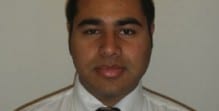Warwick
Warwick Medical School is the largest graduate-entry only course in the UK. Originally in 2000, Warwick was in partnership with Leicester Medical School but received its independent status in 2007.
It is currently ranked 29th for Medicine in the UK by the Guardian 2024. Impressively, in 2019 and 2021, Warwick ranked second in the UK in average scores for the Foundation Program, coming second only to an Oxbridge University both times.
About The Course
Warwick Medical School (WMS) offers a four year MB ChB programme designed specifically for graduate students. It aims to develop highly competent and compassionate doctors who hold the highest levels of clinical standards and professionalism.
Throughout the course, students will be taught in three hospitals based around Coventry and will learn through a mixture of lectures, small group work, clinical skills and case-based learning.
This course is taught by academics who are at the forefront of their subjects both at the University of Warwick as well as regional hospitals, meaning students are guaranteed to develop the knowledge and attributes needed to be a doctor.
Structure Of The Course
Year 1
The first year at WMS is largely pre-clinical and delivered on the Gibbet Hill Campus. However, you start bedside teaching in hospitals early on. Year one is split into five blocks:
- Health, Metabolism & Homeostasis
- Blood, Lungs and Heart
- Brain and Behaviour
- Locomotion
- Reproduction & Child Health
Year One contains the majority of anatomy teaching which is taught using a large collection of impressive plastinates in a brand new facility.
Year 2
Year two starts similarly to year one, including further anatomy teaching but with a gradual increase in the amount of time spent in clinical environments. After the new year, clinical placements start in which students are based nearly full time in Hospitals and GPs. The year comprises three 10-week blocks in Surgery, Medicine and Specialties.
Year 3-4
Year three starts with a component in which students undertake their own research project. After this there are eight six-week placements in different specialties including Acute Medicine, Psychiatry, Obs & Gynae and GP. After these placements, students finish the course with an elective and an assistantship to prepare them for entering their Foundation jobs.
Academic Requirements
GCSEs: Graduate Entry only – They do not consider your A-level or GCSE examination results.
IELTs (International applicants only): Overall IELTS (Academic) score of 7.0 and minimum component scores of two at 6.0/6.5 and the rest at 7.0 or above.
Bachelor's Degree (Graduates only): As all applicants are graduates, the only academic requirements needed are an achieved or predicted 2:1 degree in any subject. Candidates who hold a 2:2 undergraduate degree must have either a Master’s or Doctoral qualification to be considered.
Mitigating Circumstances
Resits policy: Warwick will not consider applicants who have previously studied medicine but have had to leave due to academic failure or fitness to practise hearings. If you have previously studied medicine, please contact Warwick before applying.
Extenuating circumstances: Extenuating circumstances may be considered at either A: the application review stage and/or B: the point of reviewing your final results.
Deferred entry: Deferred entry is not considered at WMS. You must apply for the year you wish to enter.
Transfers: Transfers from other medical schools are not accepted at WMS.
Further Entry Requirements
Work experience: Warwick Medical School requires a minimum of 70 hours of work experience in health or social care settings in the last three years. Further information about the work experience required for Warwick can be found on their page.
Personal statement: Not considered at any point in the application, but it is checked for plagiarism.
Admissions Process
Application to Warwick Medical School must be done via the Universities and Colleges Admissions Service (UCAS). Deadlines for submission are earlier for medical courses, typically mid-October. This application will include all of your academic history as well as your personal statement and other qualifications/achievements.
Admissions Tests:
UCAT ✅
The scores required to receive an interview vary depending on the cohort’s performance. Average scores required are outlined below in ‘Admissions Statistics’. It is useful to note that Warwick does not consider SJT scores in their admissions process.
Your UCAT scores will be independently sent to your chosen Universities. Following this, you will be sent a link to provide the details and evidence of your work experience.
In 2023, the lowest UCAT score needed to be invited to an interview was 2580 whilst the average score was 2700.
Interview Type: MMI
Interview Topics: Warwick then shortlists candidates invited to interview based on academic achievement and UCAT score.
If you are successful with this first round, you will be invited to an interview which takes place in early December. Warwick uses Multiple Mini Interviews (MMIs) which consist of six stations and lasts around two hours in total. Qualities assessed in candidates during the interview include team working, insight, resilience, empathy and communication skills. More information about Warwick medical interviews can be found on our school-by-school guide.
If you are successful in the interview stage, you can expect an offer from Warwick typically in late February.
Admissions Statistics
| Total number of applicants: | 1382 |
| Total number of places: | 200 |
| Total number of entrants: | 200 |
| Acceptance rate: | 14.47% |
Fees
| Home students: | £9250 pa |
| Rest of UK: | TBC |
| International students: | £27288 pa (for year one, £47,580 for subsequent years.) |
Teaching Methods
Teaching style: Teaching at WMS uses an integrated style in which students learn through lectures, group work, e-learning, workshops and case-based learning. In addition, students will learn through clinical experience which is provided from the first year of study.
Graduate Prospects
Although there does not appear to be any graduate prospect data for Warwick Medical School, as mentioned at the top of the page, WMS achieves very impressive outcomes in the Foundation Programme scores. These scores are made from the examinations required to form students ranking in the Foundation programme. In 2019 and 2021, WMS came second place after an Oxbridge University.
FAQs
Does Warwick Medical School offer any places through clearing?
Due to the highly competitive nature of the course and the rigorous selection process, WMS does not offer any places through clearing. However, students may be put on a waiting list and therefore receive a late offer.
Which Hospitals do Warwick Medical students train at?
There are three main Hospitals associated with WMS; University Hospitals Coventry and Warwickshire, Warwick Hospital and George Eliot Hospital.
Is Warwick Medical School hard to get into?
Admissions to WMS are very competitive. The success rate for applicants in 2023 was 19% and in 2022 was 14%.
Does Warwick have an Undergraduate Medicine course?
Warwick University only provides a graduate-entry medicine program – the largest in the UK!

School Details
- Website
- https://warwick.ac.uk/fac/sci/med/study/ugr
- pgteam1@warwick.ac.uk
- Phone
- +44 (0)24 765 24585

